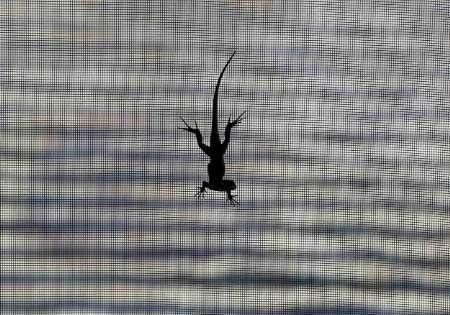New Species Of 'Gecko' Lizard Discovered In Central India

A team of researchers at the Osmania University in Hyderabad has claimed to have discovered a new species of Gecko lizard. The creature has been named Cnemaspis adii, after the name of its discoverer and a young herpetology researcher, Dr. Aditya Srinivasulu.
According to the researchers, Geckos usually inhabits warm places and the recently reported species has round pupils instead of vertical pupils as in other species of Gecko lizards. The dorsal scales on the body of the Cnemaspis Adii are reportedly small, homogenous, granular and lightly keeled. In addition, the lizard has scales ranging between 22 and 26 on its belly.
The lizard has been found in the ruins of the World Heritage Site of Hampi, in Karnataka. According to the research team, the region in and around Hampi is extremely rich in biodiversity, and not much exploration efforts have been made to identify the new species of creatures in the area.
“The discovery is significant because other species of day geckos have been, so far, reported only from the Western Ghats and southern Eastern Ghats in peninsular India. This is the first time that day geckos have been found in the central regions of peninsular India between Eastern and Western Ghats,” said Srinivasulu, the lead author, reported TheNewsReports.com.
A team of students from the Department of Zoology in Osmania University accidentally discovered the species back in 2012 while surveying the location for bats in Hampi. Cnemaspis adii was found on the walls of the temple in ruins of Hampi. Soon after the researchers realised that they have stumbled upon an entirely new species of day Gecko lizard, it was named after the name of the lead discoverer.
According to the research paper, “The existence of the species in a World Heritage Site with continuous anthropogenic interference ascertains the robustness of the species and need for additional herpetofaunal explorations to reveal the total diversity of species of the genus Cnemaspis in peninsular India,” reported The Micro Finance Monitor.
The discovery has been reported in the journal Zootaxa.
To report a problem or to leave a feedback on the article, send an e-mail to emailtoguneet@gmail.com.





















